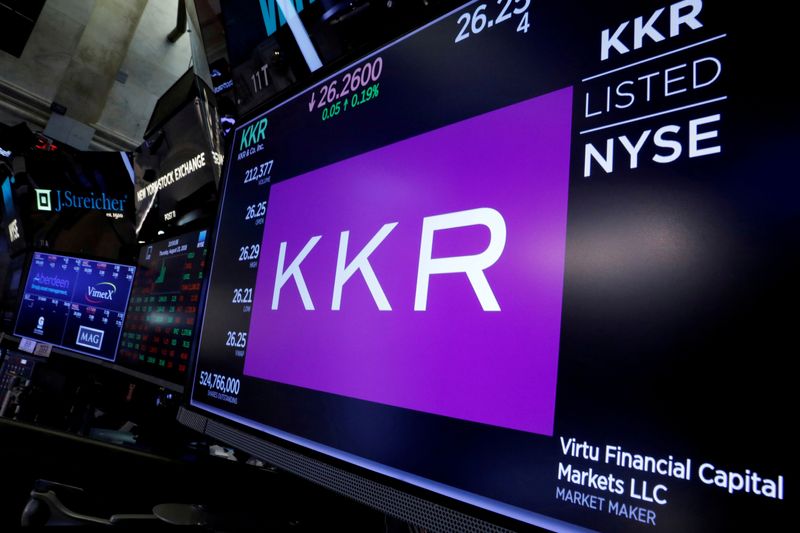By Tatiana Bautzer and Saeed Azhar
NEW YORK (Reuters) - The turmoil facing U.S. regional banks has prompted some lenders to step back, leaving space for investors such as asset managers, private equity (PE) funds and insurers to lend more.
Non-bank lenders with deep pockets have invested in credit assets for years, but the regional banking crisis could supercharge their expansion into areas such as providing consumer car loans and mortgages, or financing the construction of buildings, according to industry executives.
A cooling U.S. economy has also prompted some large banks to rein in lending, leaving space for money managers to step in.
Direct lending by non-bank creditors contrasts with the more widespread practice of banks underwriting debt that they can sell in secondary markets.
"With loan terms tougher and tighter, the option for private credit providers is on steroids," said Drew Schardt, head of investment strategy at Hamilton Lane (NASDAQ:HLNE), one of the largest investment firms in private markets.
PE and investment management firms including Ares Management (NYSE:ARES) Corp, Brookfield Asset Management and KKR are lending in areas traditionally dominated by banks.
"We expect to grow further by filling the void that regional banks are leaving as they pull back from certain types of lending," said Dan Pietrzak, co-head of private credit at KKR, which manages $76 billion in credit funds. Pietrzak sees "attractive" assets in auto and consumer lending.
In the consumer business, $550 million of loans for homeowners buying solar panels from SunPower (NASDAQ:SPWR) will be financed by KKR, under an agreement announced earlier this month.
Investors are looking for real estate opportunities as well. When American Lions sought financing to build a 363-unit residential building in Long Island City, it got a $250 million loan from Brookfield Asset Management.
"We see U.S. commercial banks retreating from real estate lending," in some cases because regulators have instructed banks to reduce their exposure, said Andrea Balkan, managing partner overseeing Brookfield Asset Management's real estate finance funds. "It's times like this when we have a unique ability to grow."
POISED TO GAIN SHARE
Investors providing private credit comprise 12% of the $6.3 trillion U.S. commercial credit market, according to Fitch Ratings. That compares with regional banks, which account for $4.5 trillion in loans, or 40% of the U.S. total.
"The tightening of lending standards creates opportunities for private credit to gain share," said Lyle Margolis, Fitch's head of private credit.
The largest U.S. banks are required to hold large amounts of capital and follow strict rules to ensure clients' money is safe, particularly after the 2008 financial crisis.
Shadow banks, as the private creditors are known, are able to lend with fewer regulatory hurdles. While private credit funds have grown swiftly, the risks they pose to the financial system appear limited, the Federal Reserve wrote in a report this month.
The International Monetary Fund painted a different picture, warning in April that the expansion of private credit may have added vulnerabilities to the financial system and called for more supervision of non-banks. The lack of public information about the loans makes it difficult for markets and regulators to measure risks "until it is too late," the fund wrote.
Some PE executives reject that criticism.
"Private credit is very transparent. We disclose in our earnings report every investment we make, and investors in the private funds have access to detailed information" about the loans in their portfolios, said Pietrzak at KKR.
Ares expects an initial wave of financing deals from banks seeking to boost their liquidity or sell assets, it said in a report. The second wave will come from banks' reducing lending in consumer, auto, credit cards or commercial real estate.
"Very little activity in traditional capital markets causes a lot of spillover into private capital," said Keith Ashton, a partner and co-head of alternative credit at Ares.
PE firms have more than $1 trillion that could be deployed on deals, Christopher Sheldon, KKR's co-head of credit and markets, estimated in a recent paper.
Investors can fill the gap left by banks in various ways. They may buy loan portfolios directly from banks, or lend to companies previously financed by banks. In some cases, investors participate in derivatives transactions, taking on the risk of loan portfolios without buying them directly.Goldman Sachs (NYSE:GS)' asset management arm, which manages over $2 trillion, also sees potential growth as regional banks retrench in several areas including real estate, in which the firm is already active.

"You'll start to see other areas becoming attractive, including auto lending, small & medium enterprises (SME) and consumer lending, fund financing," Greg Olafson, president of Goldman Sachs Asset Management's alternative investments business.
(This story has been refiled to add investment management firms in paragraph 6 and remove the word 'credit' in paragraph 21)